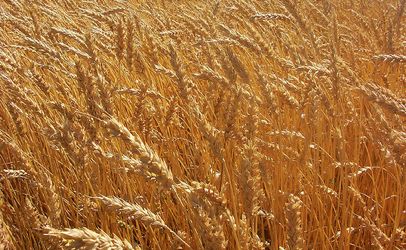A three-year project to tackle mycotoxin-related food safety issues in Africa is scheduled to start next month. MycoSafe-South is a European-African partnership for use of mycotoxin-mitigation strategies in sub-Saharan Africa, with a focus on children and a budget of almost €800,000 ($915,000).
It aims to identify safe options for aflatoxin and fumonisin-contaminated food and feed, to reduce human exposure to fungi-produced mycotoxins from animal protein sources, and to promote education and awareness to understand mycotoxin-associated health risks in humans and animals.
The expertise and infrastructure available in Europe will help strengthen capacity of the Southern partners to tackle the mycotoxin problem, according to project organizers.
Mycotoxins are naturally occurring toxins produced by certain molds and can be found in food. This has implications for food and feed safety, food security and international trade. The molds grow on a variety of crops and foodstuffs including cereals, nuts, spices, dried fruits, apples and coffee beans, often under warm and humid conditions. Adverse health effects range from acute poisoning to long-term effects such as immune deficiency and cancer.
Several hundred mycotoxins have been identified but the most common include aflatoxins, ochratoxin A, patulin, fumonisins, zearalenone and nivalenol/deoxynivalenol.
Project goals include reducing aflatoxin M1 contamination in milk of different African dairy species and decreasing aflatoxins in poultry food products.
The effort is co-funded by the Belgian Federal Science Policy Office (BELSPO), Belgian National Fund for Scientific Research (NFSR), Research Council of Norway (RCN), Kenyan Ministry of Education, Science and Technology (MoEST), South Africa’s National Research Foundation (NRF), Biomin and Harbro.
Dian Schatzmayr, development team leader for mycotoxins at Biomin, said aflatoxins and fumonisins are harmful mycotoxins that often co-occur and constitute a serious issue in Africa.
“Leveraging our leading EU-authorized technologies to combat mycotoxins, we aim to drastically reduce mycotoxin exposure in animals and limit mycotoxin carryover into food products, which should ultimately deliver real benefits for African consumers. Effective mycotoxin mitigation strategies contribute to food security, food safety and sustainability,” she added.
The company will share knowledge and expertise in trials designed to demonstrate safe and efficient detoxification of mycotoxins in African dairy species, laying hens and broilers.
MycoSafe-South is not the only project in this field. MyToolBox, running from March 2016 through February 2020, is a consortium of 23 partners from 11 countries. MycoKey, running from April 2016 through March 2020, involves 32 partners from Europe, China, Nigeria and Argentina.
Applications for seed funding as part of a contest run by the Global Alliance for Improved Nutrition (GAIN), Sight and Life Foundation, Mars Inc. and Postharvest Loss Alliance for Nutrition (PLAN) closed earlier this month. The contest invited ideas from students and young professionals to design a product, service, technology, application or approach for reducing or eliminating exposure to aflatoxin-contaminated foods and feed.
MycoSafe-South project partners are:
- Ghent University, MYTOX-SOUTH
- University of Johannesburg (South-Africa),
- University OF Nairobi (Kenya),
- Norwegian Veterinary Institute (Norway),
- University of Liege (Belgium),
- International Livestock Research Institute (ILRI) (Kenya)
- BIOMIN Holding GmbH (Austria),
- Harbro Ltd (United Kingdom)
- Partnership for Aflatoxin Control in Africa (PACA) (Ethiopia)
(To sign up for a free subscription to Food Safety News, click here.)

